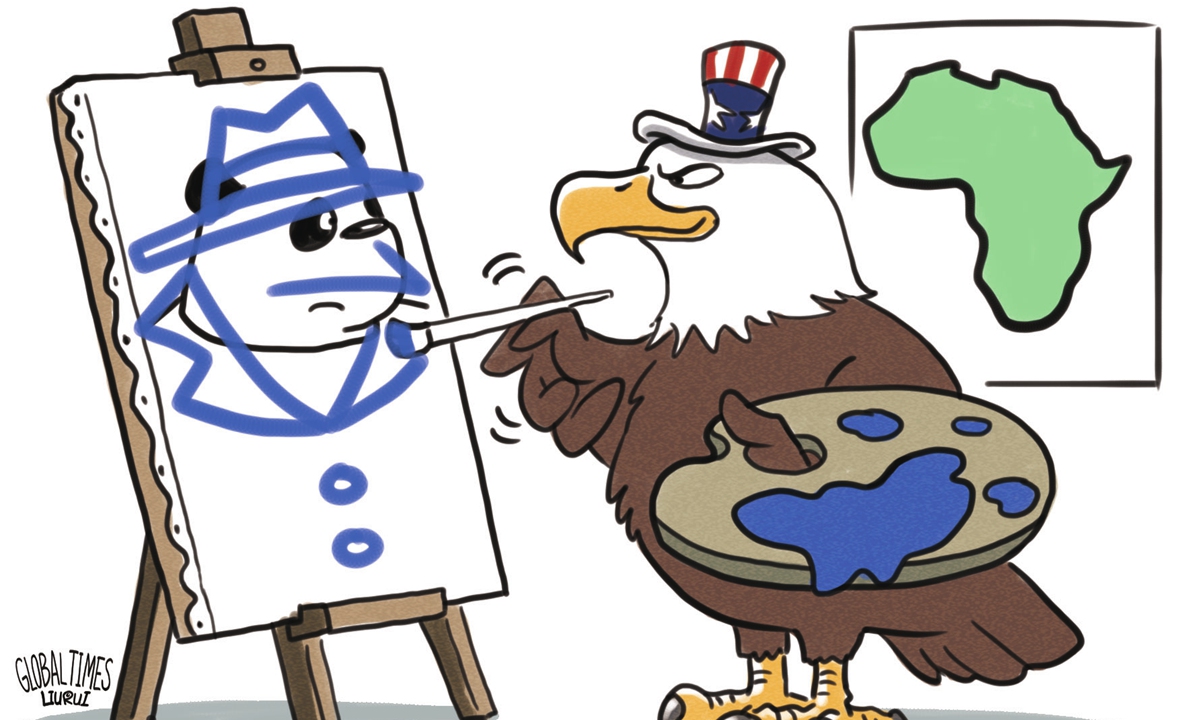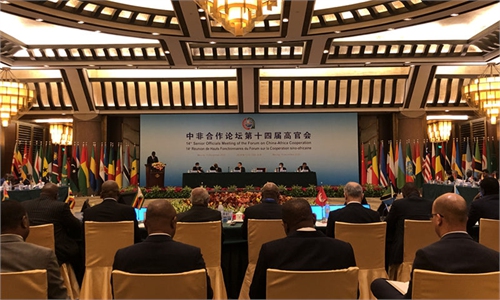
Illustration: Liu Rui/GT
It's an old yarn that gets spun and spun again - the "China spying African Union (AU)" myth. Despite being denounced as an untrue allegation by the union and China, the timing of the flood of falsehoods released usually coincides when the AU Summit convenes or major milestones of China-Africa cooperation are achieved.
Not so many people in Africa are paying attention to this assertion. This must rile several conservative think tanks in the US and officials who have dedicated themselves to peddle this narrative through different means.
"No evidence of espionage in the building," AU commission chairperson Moussa Faki Mahamat played down the allegations raised by French newspaper Le Monde during a press conference in January 2018. The sentiment is shared by other African leaders. "There is nothing to be spied (on). I don't believe it," Ethiopian Prime Minister Hailemariam Desalegn said.
Without any hard evidence or subsequent follow-up coverage to corroborate Le Monde's allegations, certain US conservative think tanks, especially the Heritage Foundation, continued to concoct subterfuge, seeding the continent with conspiracy theories that China is spying across Africa - even cooking up a report that Chinese construction projects are used to spy on locals.
Words like "possible" are repeated used in its publications to rationalize arguments to blame China. But the wording and lack of facts have resulted in a weak conclusion. All sources are anonymous and unconfirmed.
It is no surprise that the Heritage Foundation is leading this charge - it plays one of key roles of US African strategy adopted in 2018 to contain China and Russia on the continent. Since then, more allegations and accusations about China-Africa cooperation have emerged from the US.
But has this political messaging worked in Africa amid rising US-China tensions? Right after the Heritage Foundation's accusations of potential Chinese spying via African constructions projects in May, several US based media outlets, including Foreign Policy, released follow-up long articles to echo the argument. But no hard evidence was presented.
As Reuters again raised the AU spy narrative and quoted Le Monde's old story in December, both the Heritage Foundation and Foreign Policy simultaneously published long articles to criticize China. But this time, their target was more precise: Chinese 5G tech giant Huawei.
In a broader perspective, the so-called China spying AU allegation fits into the grand narrative of "Chinese espionage" created in the US. It has continued to push this trope across the Pacific Ocean too as China-US ties deteriorated. More importantly, such a narrative has been weaponized as part of a geopolitical disinformation campaign, rather than a topic seeking the truth.
This disinformation was fueled further by US conservative think tanks, media outlets and officials. One of the deep-rooted reasons for this spin seems to stem from widespread jealousy and fear in the West about China's rising as a challenger. The West is no longer the one dominating global agendas, yet they do not want to share the power.
Therefore, the "China spying AU" narratives are receiving mixed reactions in Africa. Most don't want to be forced to take sides in an arbitrary and damaging mud-slinging match between Beijing and Washington. However, the intense verbal crossfire between China and the US may continue. After all, the US has strengthened its scrutiny over Africa's internet infrastructure and 5G cooperation with China.
Whereas the US has withdrawn support to build a Center for Diseases Control in Africa, one wonders if we will soon hear lies about China spying on an African CDC. When it comes to US involvement in building regional CDC facilities, one must also ask if they will be safe from American intelligence agencies?
The author is non-resident fellow at the Institute of African Studies at Zhejiang Normal University, and research fellow at Charhar Institute. opinion@globaltimes.com.cn

